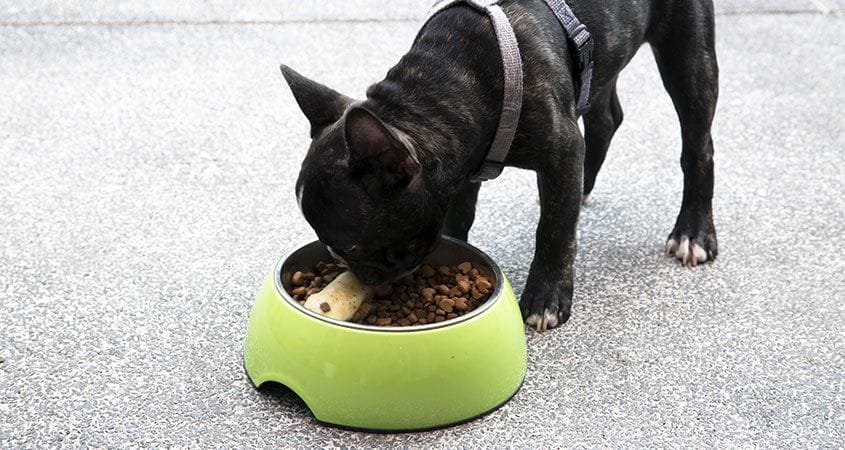Pet wellness plans provide coverage for various services and routine care that are not covered by traditional pet insurance, but they perform a comparable function. In addition to providing you with peace of mind, a wellness plan will compensate you for some of the costs associated with routine veterinary treatment.
When you take your pet to the veterinarian, you provide them with the care they require to remain happy and healthy. Throughout this section, we’ll go over how pet wellness plans function and why they’re such a vital component of your pet insurance coverage.
- What is preventative pet care, and how does it work?
- Do you require a pet health and wellness plan?
- What is a pet wellness plan, and how does it work?
- When it comes to pet insurance and wellness programs, what is the difference?
- What are the benefits of pet wellness plans?
- Are there several kinds of pet wellness plans to choose from?

What Is Preventive Pet Routine Care, And How Does It Work?
Preventive treatments are critical in maintaining your pet’s overall health. Your pet can prevent significant health concerns that are unpleasant and expensive to treat if you follow these guidelines.
Do You Require A Pet Health And Wellness Plan?
Wellness programs are entirely optional. When purchasing a wellness plan, you should consider including it as an add-on to your pet insurance policy rather than buying it as a separate product. It is possible to obtain excellent accident and illness coverage for your pet even if you do not purchase a wellness plan.
Pet parents who are just starting should carefully consider purchasing wellness coverage for their pets. A basic preventative care plan can be as low as $9.95 per month for a family of four.
What Is A Pet Wellness Plan, And How Does It Work?
In certain circles, wellness plans are referred to as “preventive plans” because they assist you in paying for preventative treatment such as teeth cleaning, vaccination, heartworm testing, and other such services. Regular veterinary costs, such as those associated with a regularly scheduled checkup at the veterinarian, are covered by a wellness plan, which can be reimbursed.
When It Comes To Pet Insurance, What Is The Difference Between Pet Wellness Programs And Pet Insurance?
A pet wellness plan is similar to traditional pet insurance in that it covers costs associated with routine care, but it is more comprehensive. Most insurance policies are meant to assist you with unforeseen veterinary expenses associated with treating injuries and diagnosing illnesses.
When you get standard pet insurance, you will receive reimbursement for covered expenses after paying your veterinarian for services. In addition, you can anticipate reimbursement for medical expenses incurred as a result of covered illnesses or injuries.

They are the most widely available sort of pet insurance. These are referred to as accident/injury prevention plans. Depending on the plan, they can cover the costs of canine x-rays, CT scans, treatments, surgeries, emergency veterinarian care, and even medicines.
What Are The Benefits Of Pet Wellness Plans?
An examination by your veterinarian during a wellness visit will look for signs of illness or abnormal behavior in your pet. The majority of pet health insurance covers the price of essential vet visits, including a physical exam. In addition to listening to your pet’s heart and lungs, they may take their temperature and weigh them.
Wellness plans do not cover emergency medical treatment or the costs of treating illnesses and injuries; this is something that your pet insurance is designed to handle. Furthermore, because no pet insurance plan will cover pre-existing conditions, it is recommended to enroll your pet in pet insurance and a wellness plan as soon as possible in your pet’s life.
Routine care diagnostics and treatment such as those listed below will be covered by your wellness plan, depending on the type of wellness plan you choose and the insurance carrier you choose to use.
Tests Of The Blood:
The Complete Blood Count test is the most often performed blood test on both people and animals. When the veterinarian does this test, they will learn about the different cell types in the animal’s blood, such as the number of red blood cells present in the sample. It is possible that any irregularities in the animal’s blood count suggest the presence of an underlying issue.
Deworming:
First, your veterinarian will conduct tests to identify whether or not parasites such as roundworms or tapeworms are present. Then they’ll administer oral treatments to your pet to clear them of the parasites. This may necessitate several different therapies.
Cleanings Of The Teeth:
As part of this examination, the veterinarian will search for abnormalities in the animal’s teeth and gums to determine whether or not the animal has dental disease. When performing routine dental cleaning on an animal, the veterinarian will typically perform a dental exam and remove plaque and tartar from the animal’s teeth. Your pet may need to be put under general anesthesia to have its teeth cleaned.
Tests On The Feces:
They’ll examine the sample with a unique solution to see whether any gastrointestinal parasites are present before releasing the results. Your veterinarian will ask you to bring in a tiny sample of your pet’s feces for examination; most veterinarians agree that the exam should be performed yearly. They may also use a microscope to examine your pet’s feces for signs of illness.

Certificates Of Good Health:
This is an official certification that verifies that your pet is free of sickness and in good health. Your pet’s vaccination record may also include a certificate stating that your pet is up to date on all of its vaccinations. Some wellness plans include coverage for the cost of a pet health certificate, which is also known as a certificate of veterinarian inspection in some circles (CVI).
You may require a pet health certificate if you wish to take your pet across foreign boundaries. In some cities, towns, and counties, you may be required to present a pet health certificate to register your pet.
Preventing Flea, Tick, And Heartworm Infections:
Most pet owners administer monthly treatments to their pets to keep fleas, ticks, and heartworms at bay. Some wellness plans may be able to cover a portion of the costs associated with these medications.
Tests For Heartworm Infection:
If your veterinarian discovers that your pet has heartworms, they may recommend further treatments, which may be covered by your standard pet insurance policy. Typically, a blood test will be performed by your veterinarian to check for heartworms. This test is commonly covered by pet insurance wellness programs.
Spaying and neutering are two options for pet owners. Some wellness programs cover the costs of spaying and neutering. It’s important to consider enrolling in a wellness plan as soon as possible if you’ve recently adopted an animal that hasn’t been fixed yet. This will allow you to get the surgery reimbursed.
Microchipping:
This operation involves the veterinarian implanting a tiny microchip beneath the skin of your pet, which is typically the size of a grain of rice. The microchip serves as your pet’s identification card. If your pet ever becomes separated from you, rescuers can scan their microchips to learn where you live and who you are due to your location and identity.
Urinalysis:
Urinalysis is a standard test that is used to determine the chemical composition of your pet’s urine. In most cases, a urinalysis is performed to check the overall health of your pet’s kidneys and urinary system; however, your veterinarian may request a urinalysis to rule out other potential concerns.
Other Types Of Routine Care Include The Following:
This is not an exhaustive list of the various forms of routine care available. All of the above are covered in some way by most wellness plans. Still, you can also acquire pet insurance that covers prescription medications, behavioral treatment, and, in some situations, alternative therapies.
Vaccinations:
Many pet health plans include routine vaccinations, such as DHLPP, titer, and rabies, which are not often covered by insurance. More than one round of vaccinations is often required for younger animals before they are deemed fully immunized. If you’re adopting a puppy or kitten that hasn’t been vaccinated yet. A wellness plan may be able to pay you for the cost of the vaccinations.
Are There Several Kinds Of Pet Wellness Plans To Choose From?
The majority of pet insurance companies provide a variety of wellness plans for dogs and cats at various price points. You may be given a choice to add one of two types of wellness plans to your pet insurance policy when shopping and comparing policies on Policy Advisor.

As expected, the most expensive wellness plans typically cover a more significant number of tests and procedures, while the more affordable plans typically only cover the essentials. Depending on your needs and preferences. You can think of these as either a basic wellness plan or an advanced wellness plan.
Depending on the insurance company, these plans will be known by a variety of names. ASPCA Pet Health Insurance, as an example, provides two different types of wellness plans:


